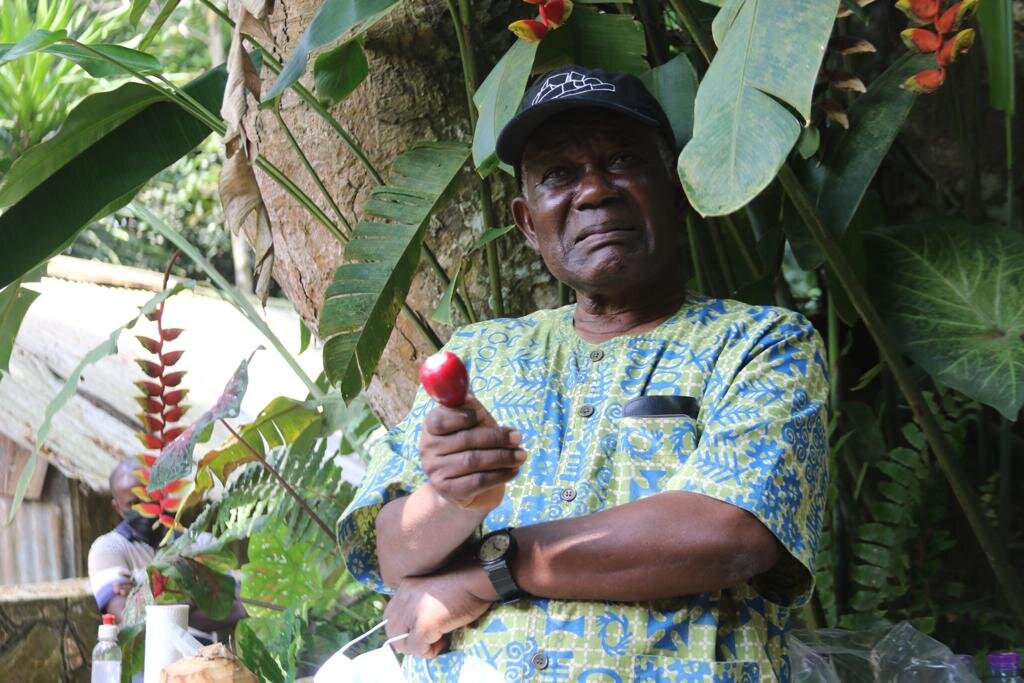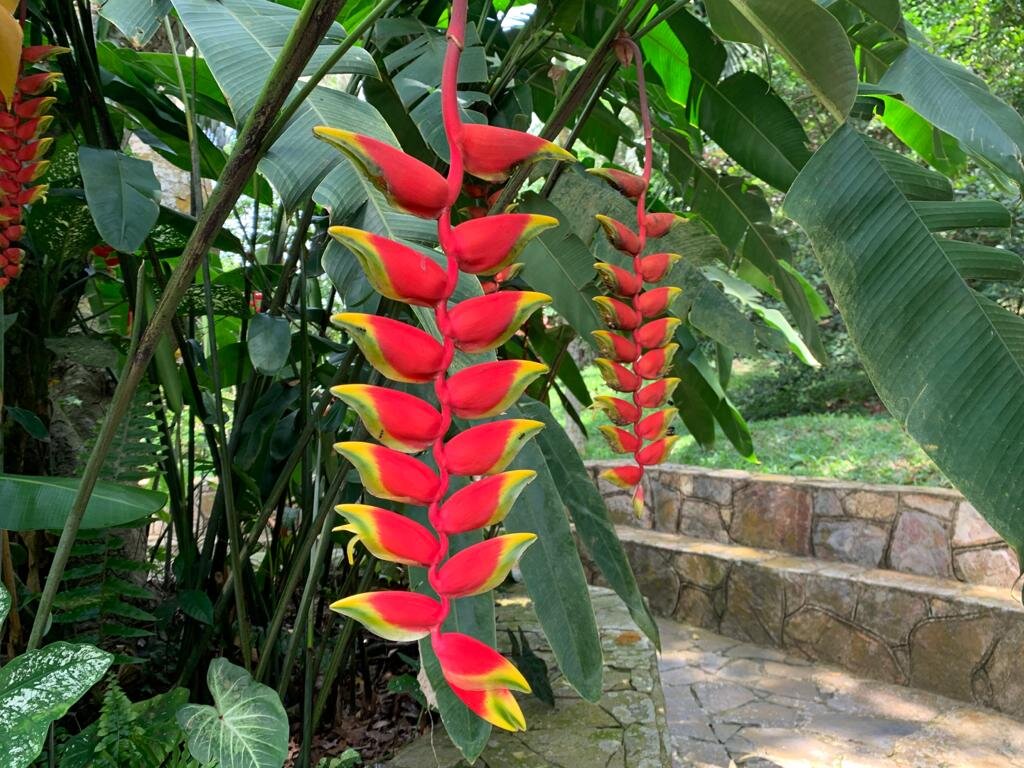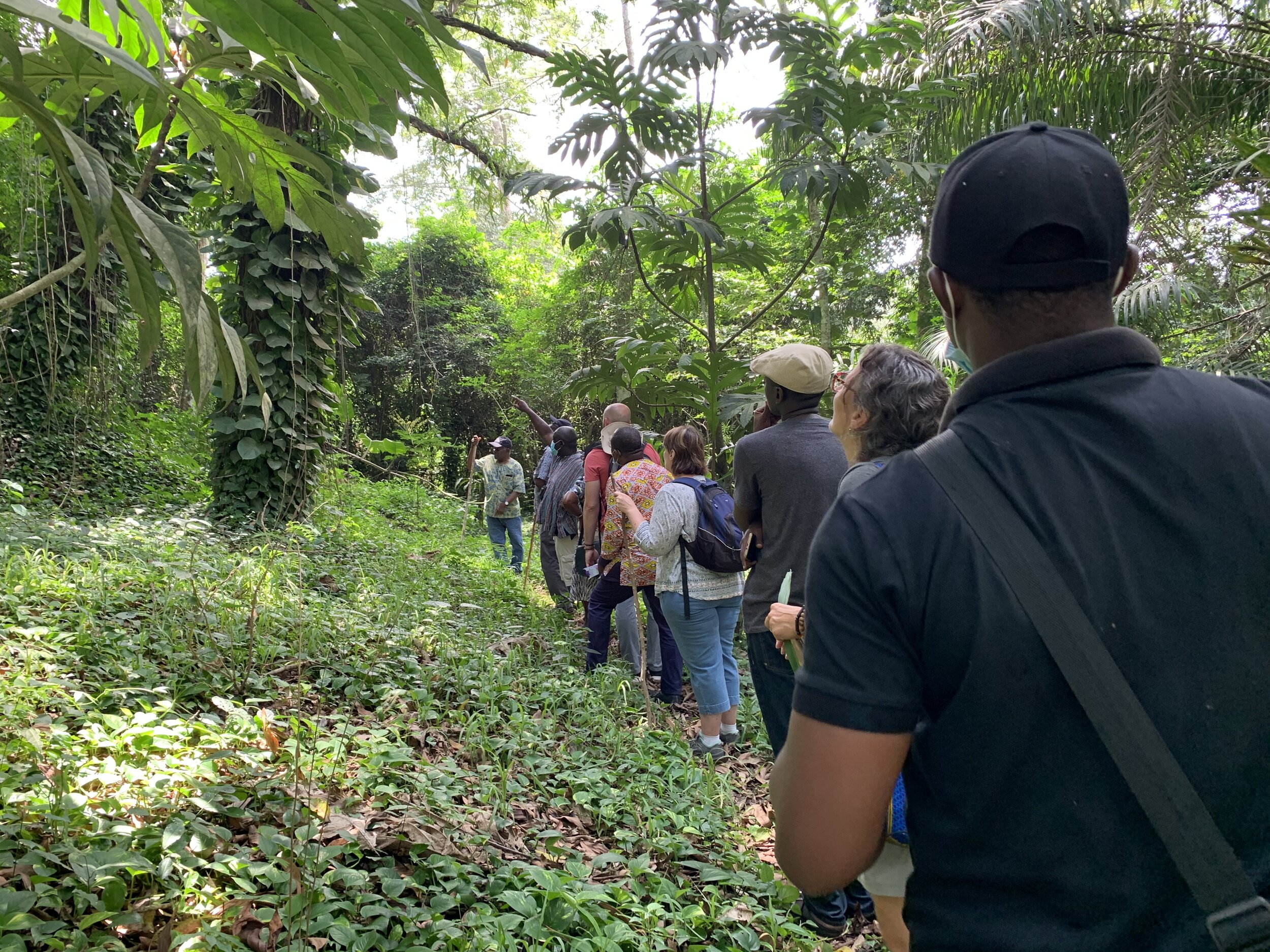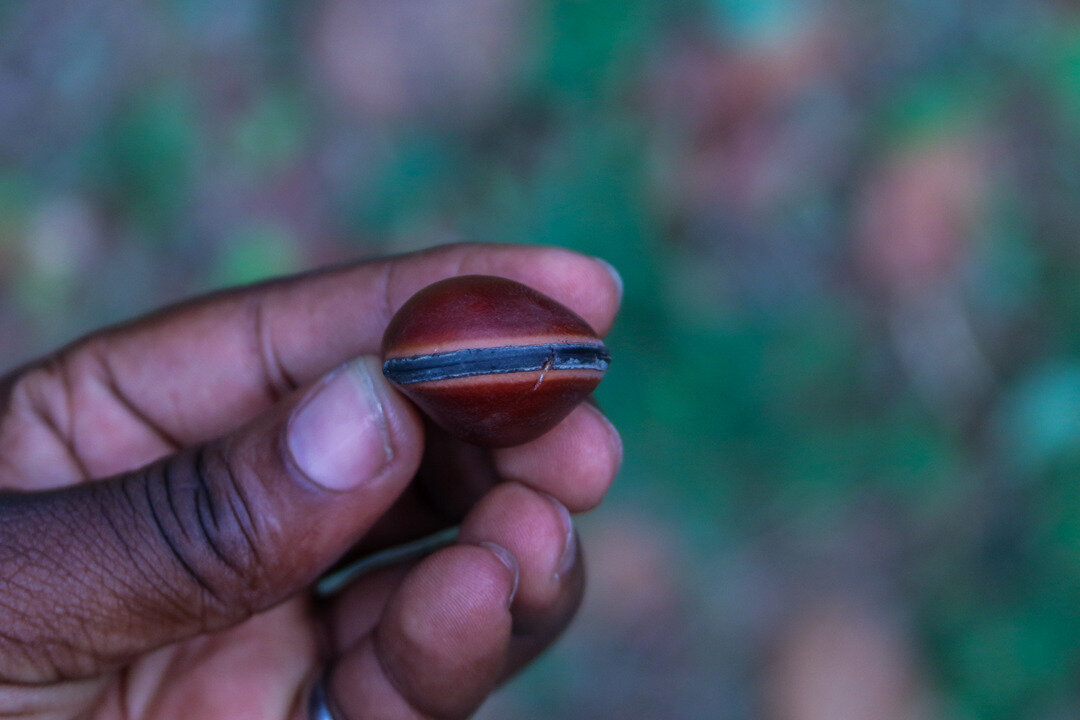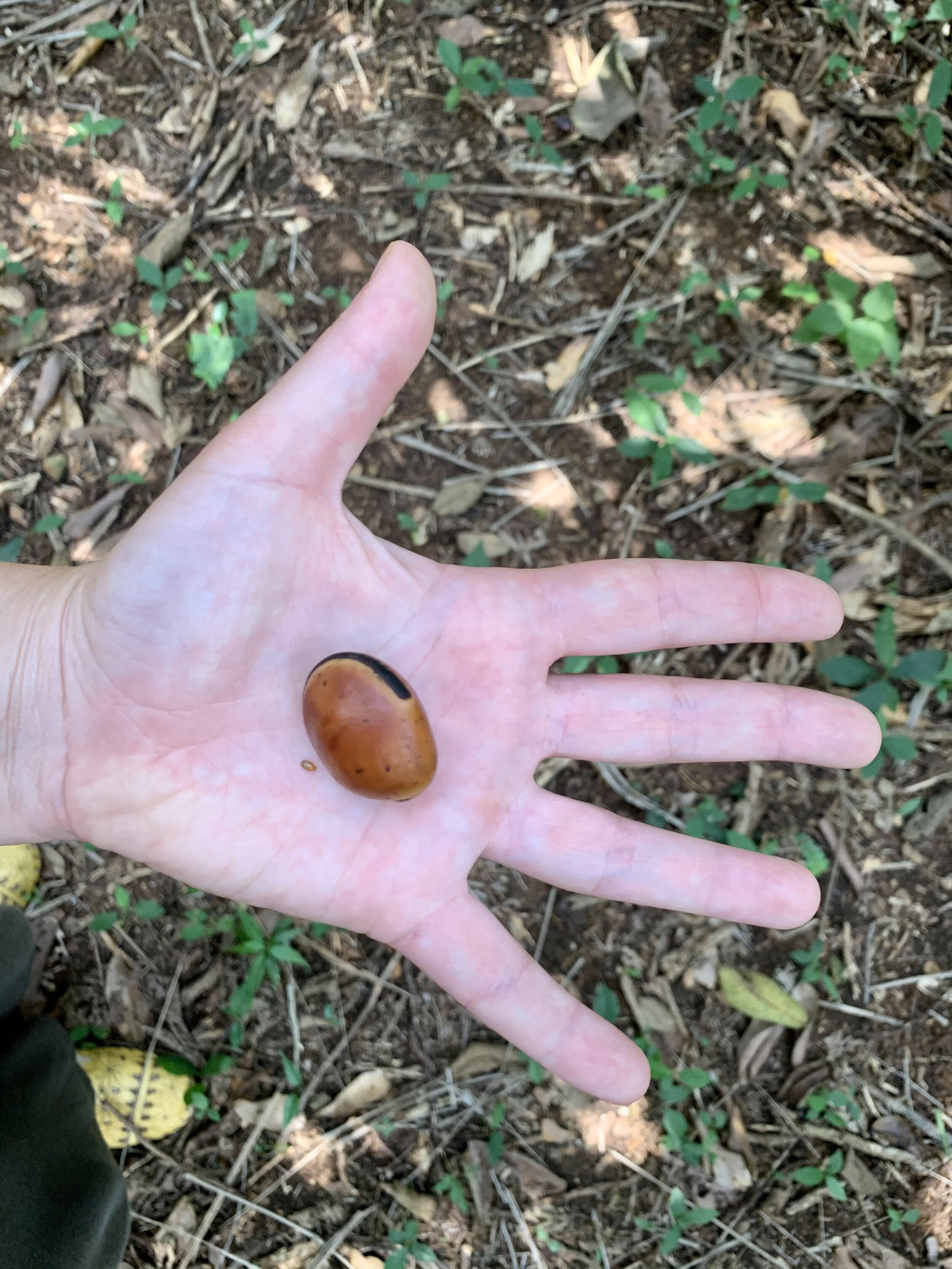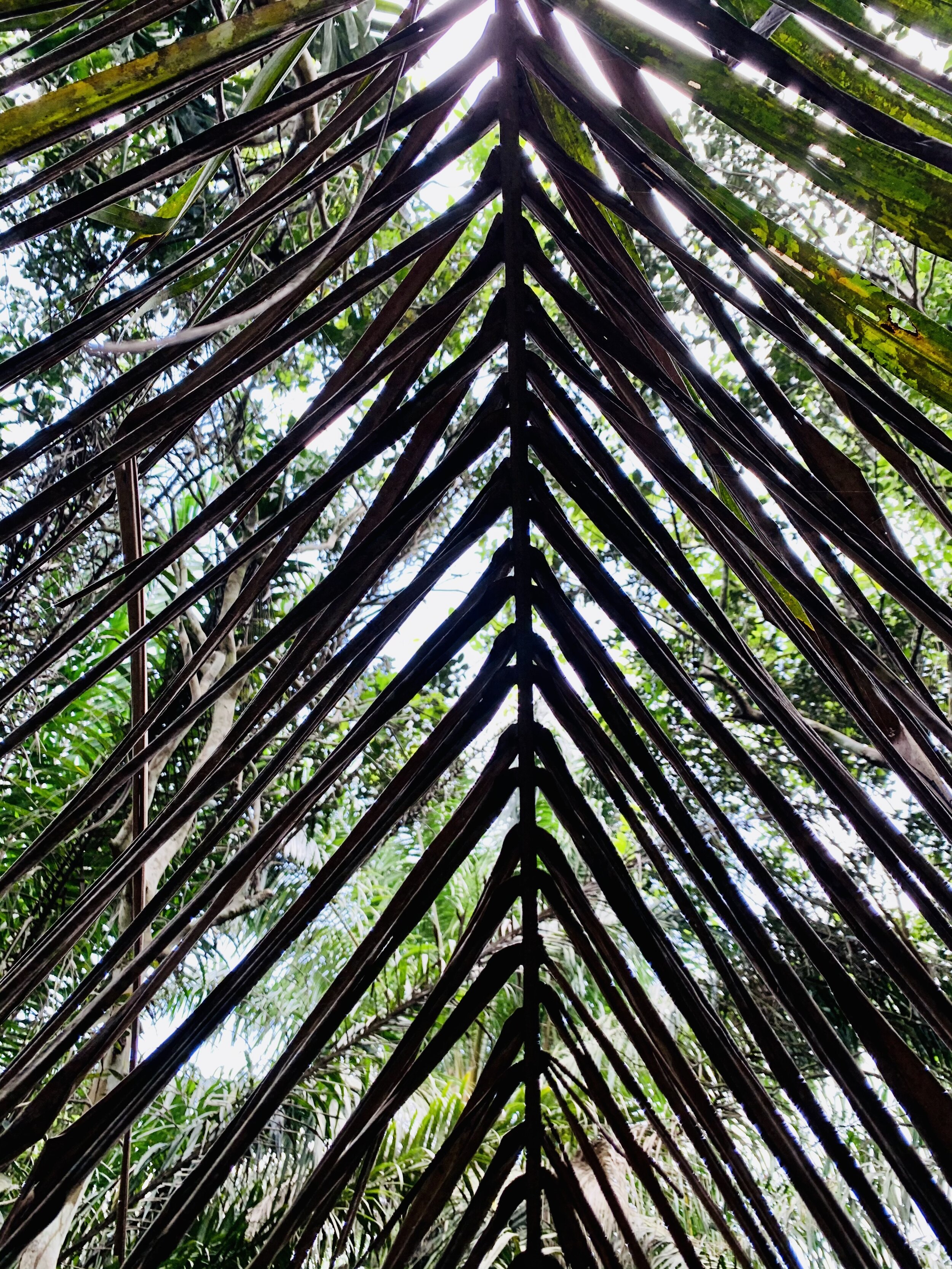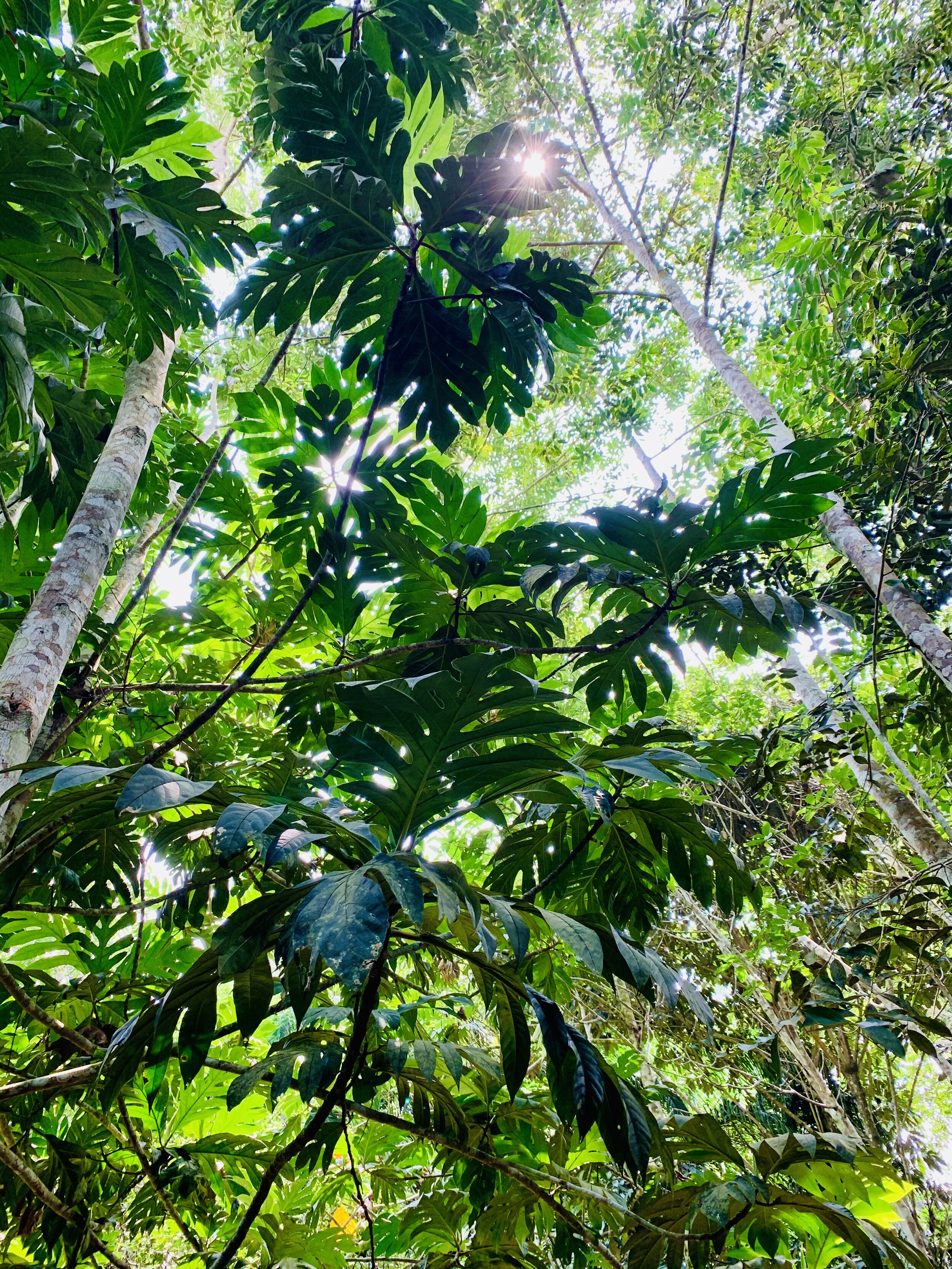By Tete Cobblah
Spirit of Life, come unto me.
Sing in my heart all the stirrings of compassion.
Blow in the wind, rise in the sea;
Move in the hand, giving life the shape of justice.
Roots hold me close; wings set me free;
Spirit of Life, come to me, come to me.
– Carolyn McDade
Spirit of life
On my trip to Ghana this past July, 2021, in a year of possibilities, tragedy and a scary pandemic, I knew that directing the Witness Tree Institute’s two-week program would be daunting. So, I sought and found strength and resilience in the familiarity of the Elmina and Cape coast. But I also found, inadvertently, what would complete my search and make whole my method for restoration: a place for the beginning of healing. A place for deeper reflection. A place called Ananse Akuraa at Mampong, in the mountains of Akwapim.
Ananse Akuraa and Kwae: A sacred place of ancient songs
I call them sacred places. These are symbolic parts of our history where human weaknesses and misdeeds have stained the land, and created tragedy and loss. Places where suffering has bred sacrifices and resilience. Places where atrocities have been hidden from human-telling of the past because the tongue can no longer continue to shame itself, and where pride and selfishness have submerged truth but for a little while, and all this while, the world still turned slowly towards Justice. Sacred places.
I also think of these sacred places as places of healing, and learning. But when the Witness Tree program embraced the idea of visiting 88-year-old Professor Kofi Asare Opoku and his acres of herbal plants and vegetation as a workshop for the institute, I had no idea that I’d learn how these places of hurt and pain don’t only have to remind us of loss but also discovery, hope and homecoming.
It is not enough to see Ananse Akuraa, (Ananse’s village) where a concrete circle has been constructed for sitting and reflection. A humble dwelling place sits among trees, protected from sun and rain. Behind the dwelling place is Ananse Kwae (Ananse’s forest), acres of land and medicinal vegetation, the vision and stewardship of Prof. Kofi Asare Opoku, a retired lecturer of the African Studies department of the university of Ghana.
Professor Kofi Asare Opoku leading a discussion at Ananse Kwae
Here on August 1, 2021 members of the WTIG cohort 2021 reached beyond themselves and found deeper understanding in each seed, root, vine, leaf and native story that was shared, and also intimate connection. At the end of the workshop, and as we walked away from Ananse Akuraa, words of WEB Dubois came to me quietly out of the folds of greenery and serenity- "When you have mastered numbers, you will in fact no longer be reading numbers, any more than you read words when reading books. You will be reading meanings.”
So, I have emerged from this experience with some other thoughts and practices to share with you. You may have heard them before somewhere but I’ll emphasize them today…
Find a place to meditate and reflect
Find a place like Ananse Akuraa for daily and active reflection. Each day, use this place as a “provocative symbol” for an idea, experience, exercise, action plan or a source of healing and comfort. You may find communication with the earth accessible, and your role as guardian of the earth would become clearer. Your faith in life and humans may be deepened. “As you live, believe in life! Always human beings will live and progress to greater, broader and fuller life. The only possible death is to lose belief in this truth simply because the great end comes slowly, because time is long." – The voice of Dubois connecting us to hope.
Tell stories. Use proverbs.
Teach through stories and proverbs. “The right hand washes the left hand, and the left washes the right.” This Akan proverb is an example of how proverbs can allow us to internalize philosophical and moral questions. Humans have limitations. You cannot go it alone. We need each other. Collaborate, cooperate and share. We all learn better through stories, especially children.
Listen (to the trees) and Justice.
At one point of our visit to Ananse Akuraa, Professor Asare Opoku asked us to put our ears to the heart/middle of the trunk of a Kyenkyen tree, whose bark was once used for clothing by our ancestors. We all listened and heard different “things”. He said, “I like to think I am hearing the voices of my ancestors.” Then I asked myself questions prompted by the experience and my interest in social justice. As an agent of change, do you hear anything? What do you hear? If you don’t, what noise prevents you from hearing? Perhaps your very life depends on what you hear. If in your day to day life, in your neighborhood, classroom and town you’ve heard these cries before or witnessed lives interrupted, what are you going to do about that?
Cohort member Cidi listening deeply to the trunk of a Kyenkyen tree
Be intentional
For the first time on my trips to Ghana, I became intentionally reflective. I wrote, I sang, I embraced silence and I opened my heart. Pay attention to your experiences in life. As I wrote in one of my WTIG editorials, “If we pay close attention to our lives and our responsibilities towards each other, we will understand that we are all witness trees to the historical, emotional, poignant and consequential happenings around us.” If you have witnessed, so have you the responsibility to act. For example, I read a few days ago that the UN is warning that our world is in crisis. We know that this has been the truth for a while. As a teacher or leader, come up with an action plan to create positive change, and share it with a child, student, a friend. Challenge your neighborhood to act. Don’t waste time because there is no better day to protect the future than now.
Be a Guardian of the Soil
Just as Ghanaian ancestors have charged chiefs, queen mothers, leaders with the guardianship of their lands, so have many native peoples charged their citizenry with that responsibility. Learn about those who worked and lived the land on which you dwell. Study their ways and be guided by their wisdom and yours too.
Look for Healing
We all bear scars. These are reminders of our vulnerability and fragility. That is why we always seek opportunities to heal. See how nature recycles itself and life through natural disasters, death, world calamities? And then comes the healing. Sacred and natural places remind us of their ability to comfort and heal also. But I think we must embrace all of nature – its grief, sadness, temper, death, pain, joys, triumphs and uncertainties – all will come to us one day. But the path to “Healing” may only come to us when we sit with nature and embrace it fully.
Reflect & Meditate
Just as nature resets and renews itself, find professional development and personal growth opportunities to reset your learning. You are committed to lifelong learning. There is so much to be enriched by. Stay open-minded. Sidle up to difference. Search, explore, learn and then act from a place of truth, not blindness, fear or myopia. As Professor Asare Opoku said, “There is learning in every forest.” Learn to support others and be a collaborator. “The right hand washes the left; the left washes the right.” Professor Asare Opoku said. “ Every human has a limitation. We need each other. The way to overcome the limitation is to collaborate.“
Honor diversity and difference
I just took a liking to the Hanging lobster claw Heliconia or false bird of paradise (heliconia rostrate). I am told some of these beautiful fruits grow upright, others upside down, but both provide nectar and water for birds. That is just one of many instructive plants at Ananse Akuraa that caught my attention. Each plant has a story. Each story lifts another plant up (even parasitic plants play a role in balancing the ecosystem) thereby enriching the forest. Humans are part of this. Make respect for Diversity and identities part of the culture of your classroom, institution and life because we all, like the birds, benefit from our strengths.
Express gratitude each day
Even though we learn from experience, I have found out that deeper learning comes from reflection. So at Ananse Akuraa, all the lessons of WTIG program 2021 came to meet in one place – Gertrude Fefoame’s eloquent, honest and passionate retelling of her journey from (dis)ability to ability, the dungeons of Elmina and Cape coast arrived with their muted moans and chains, the steady streams formed by the Pra river as it gathers the remains of its children’s skins found its place amongst us, and the gentle dirges and proverbs in song from the brilliance of Agya Koo Nimo, and the wisdom of the wind as it carried all of our lessons to Ananse Kwae. I also heard the comforting and ever-present voices of my deceased parents and forbears like the susurrus of the sea, and my eyes welled with tears of gratitude. Recognizing and appreciating what you have been gifted, and blessed with, brings contentment and peace.
What next?
What do we do with our personal experiences and thoughts at a place like this? Of all the people who nurture young minds, none feel a more urgent need to do the right thing than teachers. The Witness Tree Institute of Ghana believes that each participant in its program, by experiencing and reflecting on themselves, their place on the planet, far-reaching historical events, traditions and the rich culture of Ghana, becomes “a witness tree,” and goes out to responsibly share what has been stimulated and uncovered by our program.
What seeds are you going to sow today and tomorrow?
- Tete Cobblah
I am not alone in finding deep meaning at Ananas Kwae; other members of the WTIG team offer their reflections below from this unique, sacred place.
A Ghanaian proverb reads: “Knowledge is a Baobab Tree - one person cannot wrap arms around the trunk, it takes many holding hands to hold the trunk.
At Ananse Kwae, this proverb comes to life. The “Spider’s Village” is a botanical garden of medicinal plants, and we learn - this plant helps lower blood pressure… this tree relieves malaria… that leaf inhibits cancer.
The knowledge of these plants and their uses remains with the traditional healers and keepers of indigenous knowledge. There is a wealth of knowledge held by elders that grows and blooms in the garden. But these practitioners arms alone are not long enough to hold the trunk of the Baobab tree.
Western science relies upon trial and error, observing, hypothesizing, experimenting, and revising in a never ending cycle of enhancing understanding. Alone, these outstretched arms are not long enough to surround the Baobab tree.
Instead it is the indigenous knowledge held by tradition and elders coupled with the knowledge built up by trained scientists that can encircle the Baobab tree. Together, these keepers and practitioners construct the knowledge of our understanding of the universe. These linked arms make humankind complete and holistic. And it is in this way, that the botanical gardens of Ananse Kwae is the Baobab tree that holds our world together.
–David Duane
Visionary educator Seymour Papert expressed that learning something new is like getting to know a person; be it Newtonian Mechanics or Hegelian Philosophy, understanding complex concepts looks less like “school” and more like the way we meet a new friend – through different experiences, conversations, and events, they slowly reveal to us the complexity of who they are.
About 15 minutes into our time at Ananse Kwae it became clear to me that we were not being introduced to a piece of property with some impressive flora; we were meeting a new friend and great teacher – Nature herself. We encountered a tree, paused to admire its beauty, luxuriated in its cool shade, and felt a tranquility in gazing at the perfection of its symmetrical leaves. We went deeper, as our guide Prof. Opoku explained to us the symbolism of this tree in Ghanian culture and the way societal norms and values are passed on through nature from generation to generation; we picked off a leaf, split it open, allowed its cooling juices to soothe our skin; Prof. Opoku went on to describe the economic impact of the plant’s fruit on the livelihoods of the people in the community who are directly affected by its production and trade. I watched its shadow dance in the wind.
If this experience were a course in school, what would it be called? “Medicinal Botanical Economics and Aesthetics 101”? Most people would laugh at the idea of thinking you can know a person because you read a textbook entry about their personality. Yet so often that’s how we treat learning. There is no textbook or worksheet that would do justice to the experience we had getting to know Ananse Kwae. And just like getting a know a person, each new encounter with this rich land would offer new insights and experiences, as is evident in Prof. Opoku’s expertise of the land, for which he himself is a life-long learner of its teachings.
So rare is the chance to viscerally experience such rich ideas and to witness the interconnectedness of the natural world and the people who inhabit it. May I strive to offer the gift of experience to my students as Prof. Opoku has offered to us.
– Rosalie Norris
At Ananse Kwae last Sunday we were surrounded by a diversity of plants and trees full of life-giving properties, insects and birds thriving on a shady slope together. Our WTIG cohort- another collection of diverse identities was treated to coconuts, oranges, pineapples and Professor Opoku’s love of proverb wisdom at his beautiful curvilinear stone gathering place following our walk on the lush grounds. Letting things grow and creating microclimates of learning; offering nourishment; wondering, wandering and finding answers; feeling the thrum of life among the trees and among WTIG participants were especially in play at Ananse Kwae.
Nature was doing under Prof. Opoku’s care what the Witness Tree Institute was designed to do-provide conditions for growth, exchange and learning in the moment with benefits in the future. At Ananse Kwae, Agya Koo Nimo’s story from our visit to him a few days earlier was echoed, of an old man planting trees that, while he may not live to enjoy, he finds meaning in planting for the pleasure of those yet unborn. WTIG looks forward to returning to Prof. Opoku’s sanctuary and supporting efforts to create restorative natural spaces where trees are allowed to grow. We wish him well in his meaningful and important work. Ye da’ase pa paa pa!
– Elizabeth Cobblah
